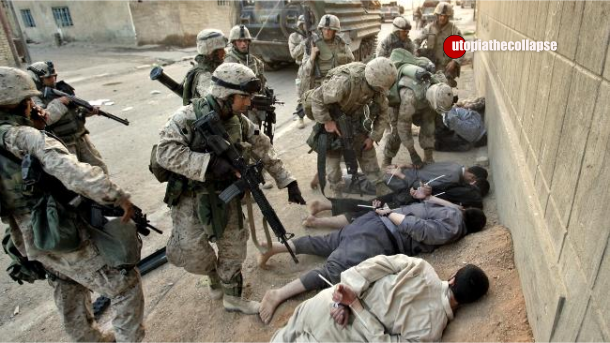Former U.S. Defense Secretary calls for ‘New World Order’
04/27/2016 12:23
Former U.S. Secretary of Defense Chuck Hagel has called for a “new world order” and urged nations in the region to work together closely, as the world faces its most challenging security threats. Hagel, who served as the 24th Secretary of Defense from 2013 to 2015, said in a lecture in Abu Dhabi that the region is confronted with rising challenges. “We are so consumed with the immediacy of the threat,” he pointed out. The lecture was attended by Mohammed bin Ahmed Al Bowardi, UAE’s Minister of State for Defense Affairs; Ambassador Lana Nusseibeh, Permanent Representative of the UAE to the United Nations; senior government officials and members of the Emirates Diplomatic Academy.
Hagel, who was the only Vietnam veteran and the first enlisted combat veteran to serve as Secretary of Defense, said: “There are no parts of the world that does not affect other parts of the world.” The sudden unleashing of terrorism requires a shifting world order, and for nations to adapt to new security methods. “The 9/11 attacks significantly changed our ways of thinking,” he added. The former co-chairman of the President’s Intelligence Advisory Board and member of the Secretary of Defense’s Policy Board stressed that since the 9/11 attacks, which opened-up doors leading to the invasion of Iraq and consequently causing immense destabilization in the region, has given a rise to global threats. “If you don’t pay attention to the big threats, they won’t get better, they will only get worse, and that’s what leadership is about. “This region has suffered and continues to suffer. No other time in history has this region suffered more than today.”
Misconceptions of Islam
However, as the region faces obstacles to overcome violence and terrorist threats, it also faces obstacles to defend itself from misconceptions of Islam. “U.S. should take some of the responsibilities of the misconceptions of Islam,” added Hagel. He noted that in order to strengthen power against such security threats, a nation’s economy is its backbone. “A nation’s security depends completely on the strength of its own economy. Countries that lack a stable economy often face chaos, disorders and revolution.” Hagel gave the example of the UAE’s wise leadership and its forward thinking strategies as a stable “future-thinking economy,” and as an example of a nation’s vision that is helping its people.
Modern times call for modern measures and a heavy reliance on technology, he said. However, the rise of technology itself is immensely aiding terrorist organizations, targeting the young, the broken and the oblivious. He also urged global leaders to learn and understand the consequences of wars, including World War 1 and 2. Hagel believes that the strengthening of relationships, alliances, global trade, culture and education is critical to developing a binding security for a new world order. –Khaleej Times
Iraq war a mistake, Saddam was no threat to US: Hagel

